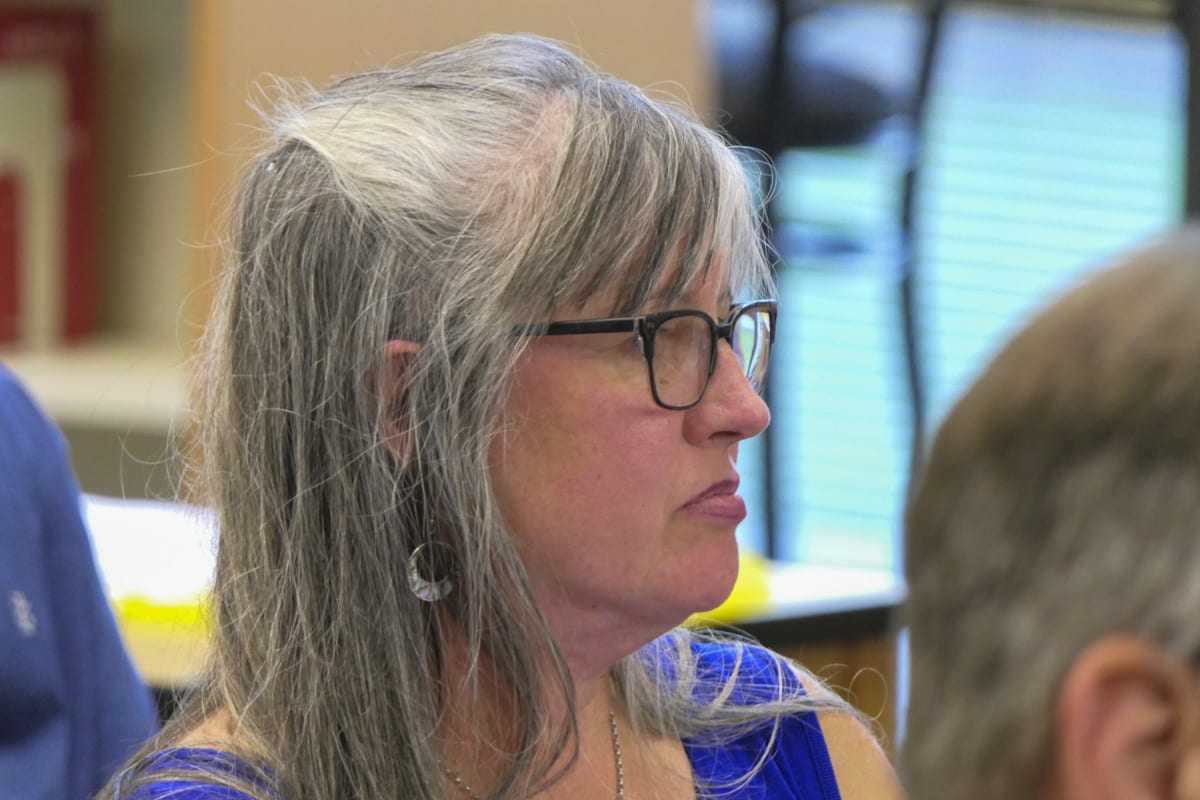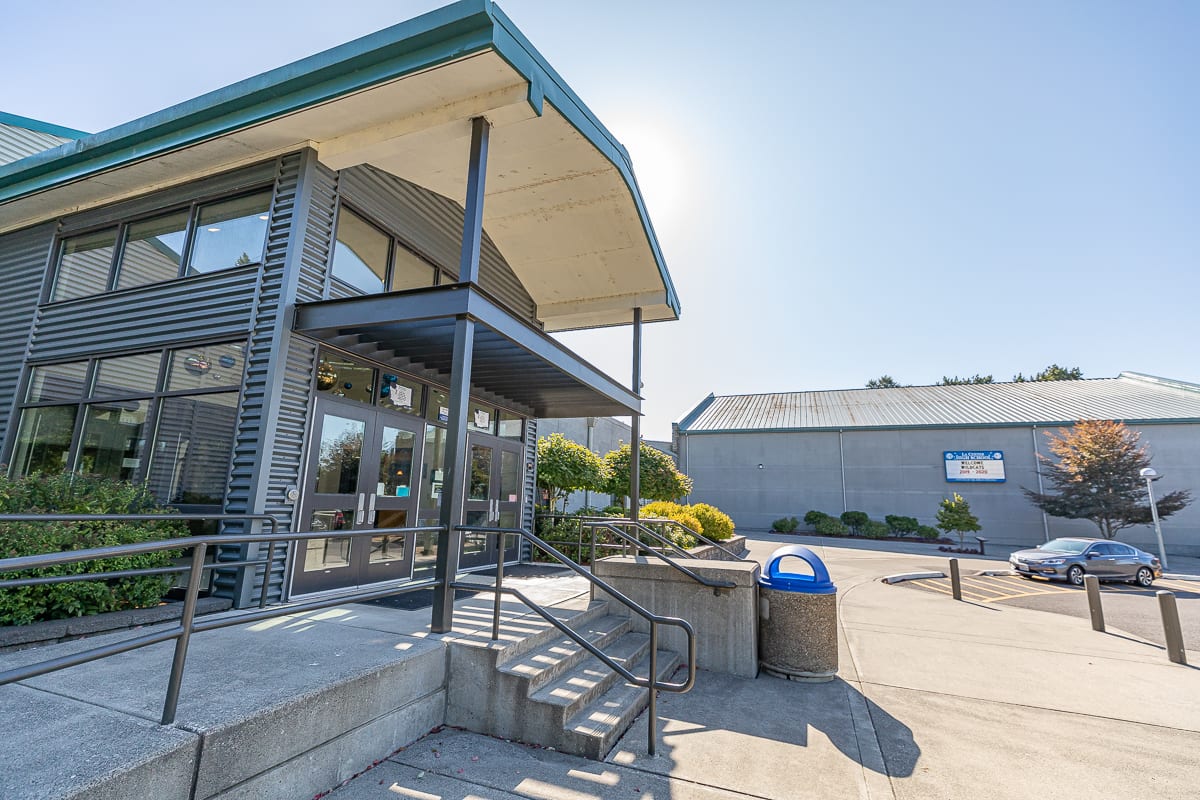The three-year deal includes an 11.5 percent raise this year
LA CENTER — Lots of hugs and tears of joy. That was the scene Tuesday afternoon as La Center School District teachers voted 100-0 in favor a new three-year contract that will give them an 11.5-percent raise this school year. That deal was unanimously approved by the school board on Tuesday evening.
“As a member of the community for 34 years, I think this is the best school year we’re going to have,” said Mary Lynn Hendrickson, a library technician for the district and member of the bargaining team for La Center Education Association (LCEA) at Tuesday’s board meeting.

Details of the final agreement were still being ironed out on Wednesday, but teachers will also receive a 3-percent raise in 2020, and a 4.5 percent raise in 2021. That will put entry-level educators at around $55,000, with the top end close to $102,000 in the final year of the deal.
La Center Superintendent Dave Holmes says the raises will put educators in the district around the middle of the pack when it comes to teacher pay in Clark County. Under a one-year agreement reached in 2018, teachers in La Center were at the bottom of the list for districts in the region.
That deal, says former union president Kathy Bounds, was extremely unpopular with teachers, and around 30 percent said they would likely be looking for jobs elsewhere if a better contract wasn’t reached this time.
“So we pretty much had a mandate from the membership to go and do our work this year,” Bounds told ClarkCountyToday.com. “And the bargaining team did an inordinate amount of training, and time spent. And the WEA (Washington Education Association) came down and had a lot of experts that were able to come with us to the table this year.”
Bounds says their analysis of the district’s budget led them to believe that there was enough money for teachers to receive a much bigger pay increase than they’d been given the year before.

“It’s pretty hard to take a look at some of the budget analysis that we did and not come up with a conclusion that we were able to bargain for more,” Bounds said.
Things came to a head early last week as teachers voted 75-1 in favor of a strike if a deal couldn’t be reached by the start of school on Wednesday. On Friday a state mediator was brought in and a deal was agreed to late Saturday night.
“One of the big things we wanted to accomplish was to get a three-year contract,” says Holmes. “Because we’ve been in negotiations for five of the last six years. And having that ongoing negotiation year after year after year, it’s really hard to build continuity with staff. And no matter how respectful and professional you are, it always just put you in an adversarial position.”
The union had been pushing for a two-year agreement, in order to line up with the state’s biennial budget cycle.

“They wanted to be in step with the state,” says Bounds, “probably just from being leery about what the state might do in that third year.”
Similar raises in other districts raised the specter this past year of massive budget deficits and potential cuts. But in the case of Evergreen and Vancouver, the state provided one-time levy equalization funding, and Battle Ground was able to take advantage of an increase to the local levy cap.
That fact, says Bounds, gave their bargaining team some extra leverage at the table.
“When it came down to where the rubber met the road, and the legislative session left, there was people who retired, and there was people who left due to attrition, and there might have been reformatting on positions and who may be where, but there were no pink slips,” says Bounds.
Bounds and Holmes agree that the district will likely need to shift some priorities to make the budget work, but Holmes says it’s his belief the community shouldn’t notice any major changes.
“That’s one of the things I told the board when we had the conversation with the business manager around what can we afford, and where would that money come from,” says Holmes. “The one thing I told them was, this is how much we can afford without me changing anything we do in terms of business decisions, programs for students, the types of things that we just provide to our community.”
Both sides readily agree that the state’s plan to fully fund basic education disproportionately harms districts like La Center. Rural, property-poor districts with a higher-than-normal percentage of teachers with 16 or more years of experience.

“The McCleary fix was not a fix, certainly not for us,” says Holmes, adding that changes made in the most recent session did little to address their situation. “The state still is not funding special education fully. It’s well underfunded. And they keep promising they will address that. That fix alone would help us dramatically.”
The district anticipates that their staffing costs will likely remain stable, or even decrease, over the length of the contract as a number of teachers have said they plan to retire in the next 3-5 years.
“We are committed to hiring the best person for the job,” says Holmes, “but just on average everybody that resigns or leaves our school, or retires, is at the very top. And, on average, whoever you hire is going to cost less. And so that just makes it more affordable as we move forward.”
Holmes says La Center is also fortunate to be able to fit 1,700 students on two campuses, allowing them to be highly efficient in how they budget.
“We call it being thrifty,” says Holmes. “We’re not cheap, we’re thrifty.”
One thing Holmes says the school board is committed to is not raising taxes in order to fund the new teacher salaries. Despite the legislature’s decision to lift the levy lid from $1.50 per $1,000 to $2.50, the board said they would not be going back to the voters to ask for any more money.
Despite the difficulty of the bargaining process and the strain on the normally good relationship between the district and its teachers, Holmes says he’s happy that their educators are going back to work today feeling valued and respected.
“I’ve personally never said, nor has the board, that we didn’t want to give the teachers every dollar we could afford,” he says. “I mean, they’re the backbone of education in this district. They’re the ones that perform that duty, the rest of us just try to support them and get things cleared out of the way.”
La Center School Board meetings often begin with a session in which the directors and members of the audience are encouraged to say something positive. During Tuesday’s meeting, Hendrickson said she wanted to compliment Holmes for his professionalism and demeanor during the tense bargaining process.
“We all wanted the same thing,” said Hendrickson, “and it just worked very well.”
“I didn’t pay her,” quipped Holmes afterwards.




